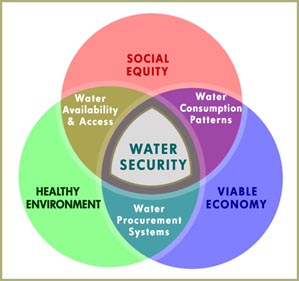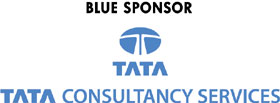Annual Conference 2015 (Forthcoming in November 2015)
Theme: SECURING WATER FOR ALL
Critical need for coherence in policies and actions
Dates: November 18-19, 2015
Venue: Gulmohar, Indian Habitat Centre, New Delhi, India.
THE FUNDAMENTAL ISSUES
Water is a fundamental human need and a critical national asset. India's huge and growing population is putting a severe strain on its water re-sources. Water along with food and energy forms a critical part of the 'new security agenda'.
FOOD-WATER-ENERGY NEXUS
This conference on Water Security follows the first one last year on Food and Nutrition Security, and will be followed the next year with focus on Energy Security. A nexus approach can help us to use and re-use resources more efficiently, reduce the impacts of critical technologies, and create synergies between resource sectors. There is also great potential to reduce pressure on existing resources by the recycling and cascading use of resources; for example wastewater from cities can be used to generate energy and be re-used in agriculture.
IMPACT OF CLIMATE CHANGE
Climate Change influences the Earth's ecosystem and water-based industries, such as agricultureľ-and thus the livelihood and well-being of societies--through the medium of water. Higher temperatures and changes in extreme weather conditions shall affect the availability and distribution of rainfall, snowmelt, river flows and groundwater, and further deteriorate water quality. The links to water discussed in this conference on adaptation to climate change and its role in sustainable development will be presented at COP21 Paris, this year, by Development Alternatives, our Knowledge Partner.
THE DEBATE NEEDED TODAY

The debate needed today encompass ideas such as reforestation to recharge the groundwater table, new technologies for growing food more efficiently, such as System of Crop Intensifications, Aquaponics and other water-friendly approaches, improvements in the system of governance, and innovations in technologies, institutional frameworks and economic instruments.
SYSTEMS THINKING FOR WATER SECURITY
The art of systems thinking, which may represent the next phase in the evolution of sustainability, in driving sustainable transformation for changing systems, and helping multiple stakeholders find a common vision, requires expertise, a certain skill set including a sense of humility and sensitivity, and a deft touch.


